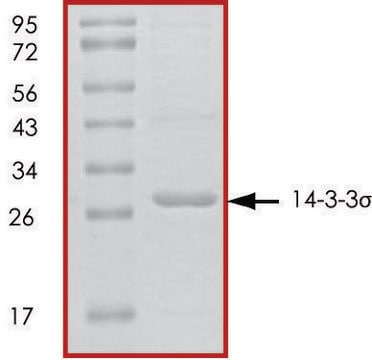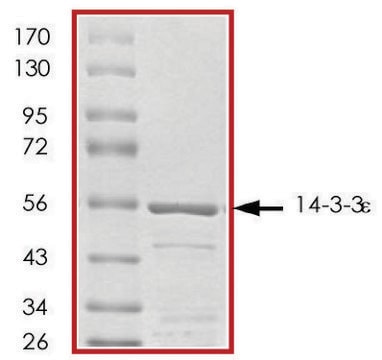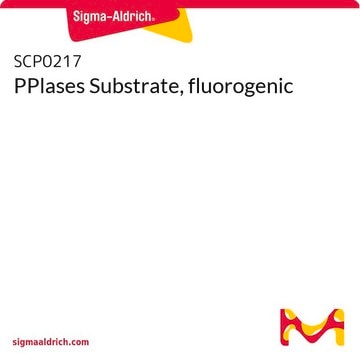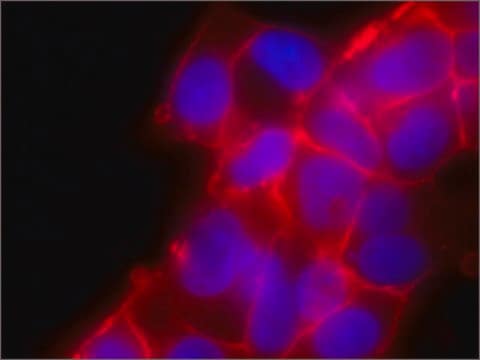SRP5156
14-3-3 ζ, untagged human
recombinant, expressed in E. coli, ≥70% (SDS-PAGE), buffered aqueous glycerol solution
Synonym(s):
14-3-3 ζ, KCIP-1, MGC111427, MGC126532, MGC138156, YWHAZ
Sign Into View Organizational & Contract Pricing
All Photos(1)
About This Item
Recommended Products
biological source
human
recombinant
expressed in E. coli
Assay
≥70% (SDS-PAGE)
form
buffered aqueous glycerol solution
mol wt
~29 kDa
NCBI accession no.
application(s)
cell analysis
shipped in
dry ice
storage temp.
−70°C
Gene Information
human ... YWHAZ(7534)
General description
14-3-3ζ (also known as tyrosine 3-monooxygenase/tryptophan 5-monooxygenase activation protein, zeta polypeptide) is a member of the 14-3-3 family of proteins which mediate signal transduction by binding to phosphoserine-containing proteins. 14-3-3ζ protein plays a key role in cancer biology by being an important regulator of major cellular processes such as proliferation, differentiation, senescence and apoptosis. 14-3-3ζ protein has been shown to interact with the IRS1 protein, suggesting a role for this protein in regulating insulin sensitivity by interrupting the association between the insulin receptor and IRS1.
Physical form
Supplied in 50mM Tris-HCl, pH 7.5, 50mM NaCl, 0.25mM DTT, 0.1mM PMSF, 25% glycerol.
Preparation Note
after opening, aliquot into smaller quantities and store at -70 °C. Avoid repeating handling and multiple freeze/thaw cycles
Storage Class Code
10 - Combustible liquids
WGK
WGK 1
Certificates of Analysis (COA)
Search for Certificates of Analysis (COA) by entering the products Lot/Batch Number. Lot and Batch Numbers can be found on a product’s label following the words ‘Lot’ or ‘Batch’.
Already Own This Product?
Find documentation for the products that you have recently purchased in the Document Library.
M Niemantsverdriet et al.
Oncogene, 27(9), 1315-1319 (2007-08-21)
14-3-3 proteins are relevant to cancer biology as they are key regulators of major cellular processes such as proliferation, differentiation, senescence and apoptosis. So far, the sigma isoform (14-3-3sigma) has most directly been implicated in carcinogenesis and was recognized as
Zenggang Li et al.
Proceedings of the National Academy of Sciences of the United States of America, 105(1), 162-167 (2007-12-29)
The family of 14-3-3 proteins has emerged as critical regulators of diverse cellular responses under both physiological and pathological conditions. Here, we report an important role of 14-3-3zeta in tumorigenesis through a mechanism that involves anoikis resistance. 14-3-3zeta is up-regulated
Our team of scientists has experience in all areas of research including Life Science, Material Science, Chemical Synthesis, Chromatography, Analytical and many others.
Contact Technical Service








